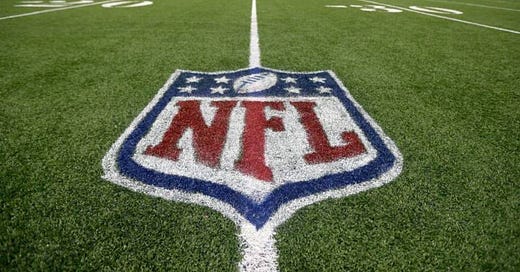NFL Opens the Door to Private Equity Investment...
The NFL breaks tradition and welcomes private equity investment for the first time...
Last week, a landmark decision was made in the world of professional football. On Tuesday, NFL owners convened in Minnesota to vote on whether to permit private equity firms to invest in NFL teams. The decision was overwhelmingly in favour, with a 31-1 vote. For those of us in the sports industry, this marks a significant shift in the NFL's traditionally stringent ownership structure. However, for the average fan, these changes will be almost invisible.
Despite the groundbreaking nature of this decision, fans won't notice much difference on the surface. Private equity investors in NFL franchises will not have any voting power, influence, or say in the day-to-day operations of the teams. They won’t be making decisions on trades, coaching hires, or game-day strategies. They won’t be the faces of the franchise, and they won’t hold any governance rights. Essentially, these investors will remain silent partners, tucked away in the background with no direct impact on the game itself.
The NFL has set strict boundaries on this new form of investment. Each team is restricted to selling no more than a 10% stake to private equity firms. To put this in perspective, the NBA and MLB allow up to 30% of team ownership to be sold to private equity. Furthermore, no individual or group can hold more than a 7.5% stake in any NFL-approved investment fund, and no individual will own more than 0.75% of a team. This ensures that private equity’s influence remains minimal and that the traditional ownership structure largely stays intact.
The NFL has long been known for its stringent ownership rules, often requiring a single individual to maintain a controlling stake in a franchise. This move to allow private equity investment represents a significant departure from that tradition. However, it is a move that aligns with broader trends in professional sports, where private equity has been playing an increasingly prominent role.
Private equity is no stranger to the sports world. In Major League Soccer (MLS), for instance, PE firms have invested in clubs like D.C. United and Orlando City SC. Overseas, Italy’s Serie A has seen private equity interest as well, with CVC Capital Partners exploring investments. In the NBA, Dyal Capital Partners has acquired stakes in teams such as the Phoenix Suns and the Golden State Warriors. Major League Baseball (MLB) has also opened its doors, with firms like Arctos Sports Partners buying into teams like the Boston Red Sox and Chicago Cubs.
For NFL team owners, this new policy opens the door to substantial financial opportunities. By selling a small portion of their teams to private equity funds, owners can gain access to hundreds of millions of dollars in cash. This influx of capital can be used to invest in facilities, player acquisitions, or simply to provide financial stability.
The NFL remains one of the most lucrative investments for private equity. With its unparalleled viewership, strong brand loyalty, and consistent revenue streams from broadcasting rights and sponsorships, the league offers attractive returns. Even a small percentage stake in an NFL team can be a highly profitable venture for private equity firms, providing them with a valuable asset in their portfolios.
While this change marks a new era for NFL ownership, the impact will largely remain behind the scenes. Fans can rest assured that their favourite teams will continue to operate as they always have, with the on-field action and team management left in the hands of those who have always run the show. Meanwhile, the NFL quietly enters a new phase of financial evolution, one that could shape the future of professional sports in ways we are only beginning to understand.


